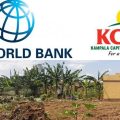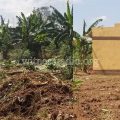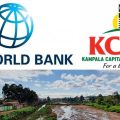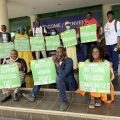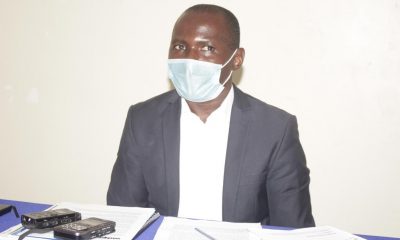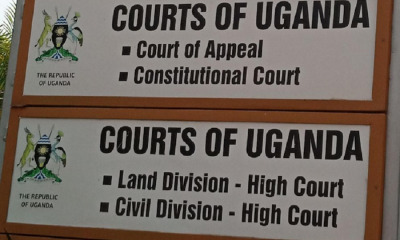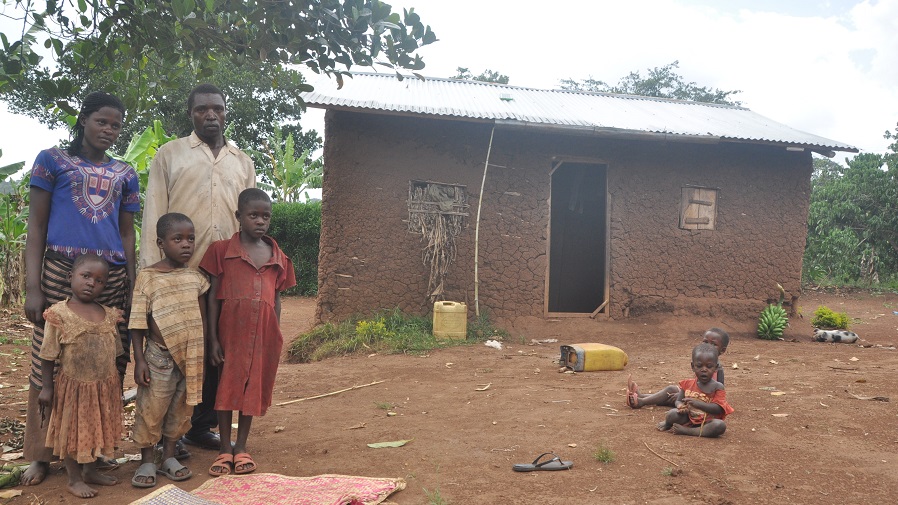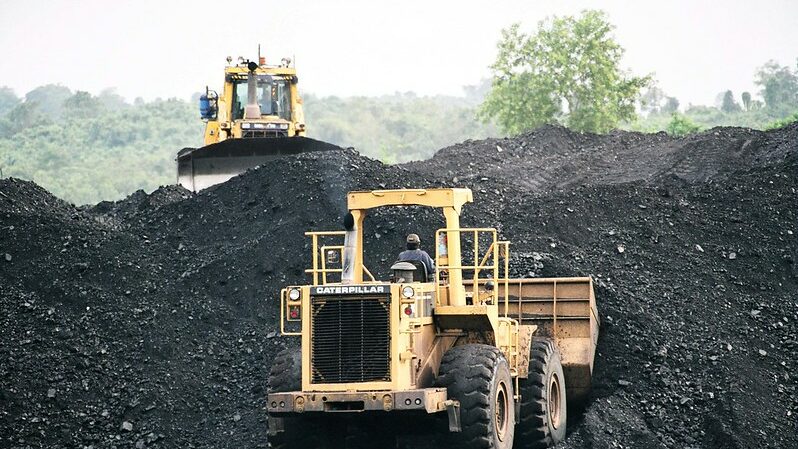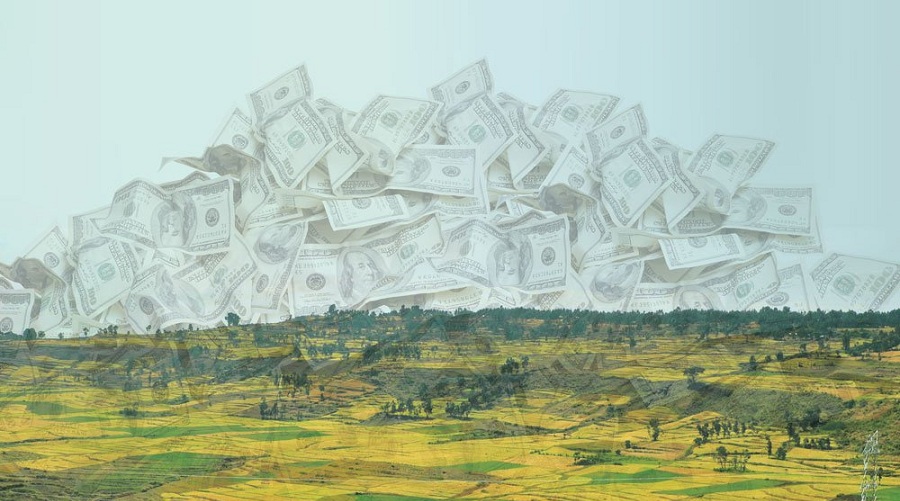Nasande Kadijah, seated in one of the village meetings.
By witnessradio.org Team
Nasande Kadijah, not real name due to fear of retaliation, is one of the residents of Kawaala zone II, in Rubaga division, in Kampala district whose piece of Kibanja is being grabbed by Kampala Capital City Authority, (KCCA) to expand and construct the Lubigi Primary Channel with the aid of the World Bank loan to tune of USD 175 Million without compensation.
Nasande was born on the same piece of land in 1972 and, later with her siblings, they inherited the same property from their parents. The land measures an acre on which she constructed a house and also uses it to grow beans, bananas, and maize.
In early December 2020, Nasande’s family was among the 120 families that first received an eviction notice from KCCA without prior notice. It later dawned on them that the eviction notice was to pave way for the channel construction.
According to Nasande, they learned about the Second Kampala Institutional and Infrastructure Development Project (KIIDP-2) from Witness Radio – Uganda lawyers.
A selfless community leader claims that she has been targeted by KCCA for mobilizing other community members to resist the COVID-19 land grab. As a result, her land has not been valued and compensated for, and yet KCCA is insisting on constructing and finishing the channel by December 2021.
After filing a complaint to the World Bank’s Inspection Panel on 17th June 2021, and holding a meeting with all stakeholders, KCCA was advised to repeat the whole evaluation process however, KCCA instead went ahead to carry out a forceful surveying exercise. Many property owners were excluded from the exercise including Nasande. KCCA also went ahead and asked them to sign documents whose contents were unknown to the project Affected Persons since they are illiterate who can barely read and write in English.
“We have requested lawyers from Witness Radio – Uganda to represent us. I never went to school, and I don’t know how to read. Documents were in English and no one could interpret for me. This is why I wanted my lawyers to be present on my behalf,” she said.
She added that there was a list of property owners allegedly circulating from KCCA but her name (Nasande) did not appear on it.
“One of the project members, Mr. Kyaddondo David accused me of ‘fighting KCCA work’ in one of the interfaces. I told him I was not fighting them but instead fighting their injustices in the eviction process. This is my land and I deserve to be compensated. If they claim what they are doing is right, why do they discouraged me from associating with my lawyers? My lawyers are there to fight for me and it is their role to do what I cannot. If they believe they want my land, let them follow what is right. Am one of the persons who welcomed the project for the development of our community, of what importance does it have when we are left suffering?”, she added.
“My land is my everything. Am a poor woman unlike them working in the offices, this is what I depend on to feed my family of five. Do they want to find me on the streets begging? I asked those officials if they can give me part of their land, then I leave this for them but they refused,” she emphasised.
According to Kadijah, even those that were allegedly valued, KCCA did not display the evaluation rates.
“Many of them were caught unaware, they are now crying, and no one knows which rates were used. The systems were fraudulent. And some of us who were mobilizing others to resist started using fellow villagers to fight us back. They told them that we are the ones holding KCCA from paying them by involving lawyers who will take our money. Our purpose of getting lawyers was to get justice, because if these people wanted to compensate us, why did they think of evicting us at first. Before saying we are bad, they are bad too,” she further added.
According to Kadijah, had it not been for the intervention of Witness Radio Uganda, and Accountability Council they would have been already evicted.
“No one could hear our voices, everyone would not listen to our stories, not even the government offices. When Witness Radio came in to help us, they slowed down and even accepted to compensate us. So why do they want us to leave Witness Radio, they want to grab our land which we cannot accept. We have given KCCA many chances and we agree to be compensated but fairly and allow the government project to proceed,” she explained.
Such unlawful processes prompted, Witness Radio Uganda together with its partner Accountability Counsel on behalf of community members to file a complaint to the inspection panel seeking their interventions.


 NGO WORK2 weeks ago
NGO WORK2 weeks ago
 MEDIA FOR CHANGE NETWORK2 weeks ago
MEDIA FOR CHANGE NETWORK2 weeks ago
 MEDIA FOR CHANGE NETWORK2 weeks ago
MEDIA FOR CHANGE NETWORK2 weeks ago
 MEDIA FOR CHANGE NETWORK2 weeks ago
MEDIA FOR CHANGE NETWORK2 weeks ago
 MEDIA FOR CHANGE NETWORK2 weeks ago
MEDIA FOR CHANGE NETWORK2 weeks ago
 MEDIA FOR CHANGE NETWORK7 days ago
MEDIA FOR CHANGE NETWORK7 days ago
 MEDIA FOR CHANGE NETWORK1 week ago
MEDIA FOR CHANGE NETWORK1 week ago
 MEDIA FOR CHANGE NETWORK2 days ago
MEDIA FOR CHANGE NETWORK2 days ago

